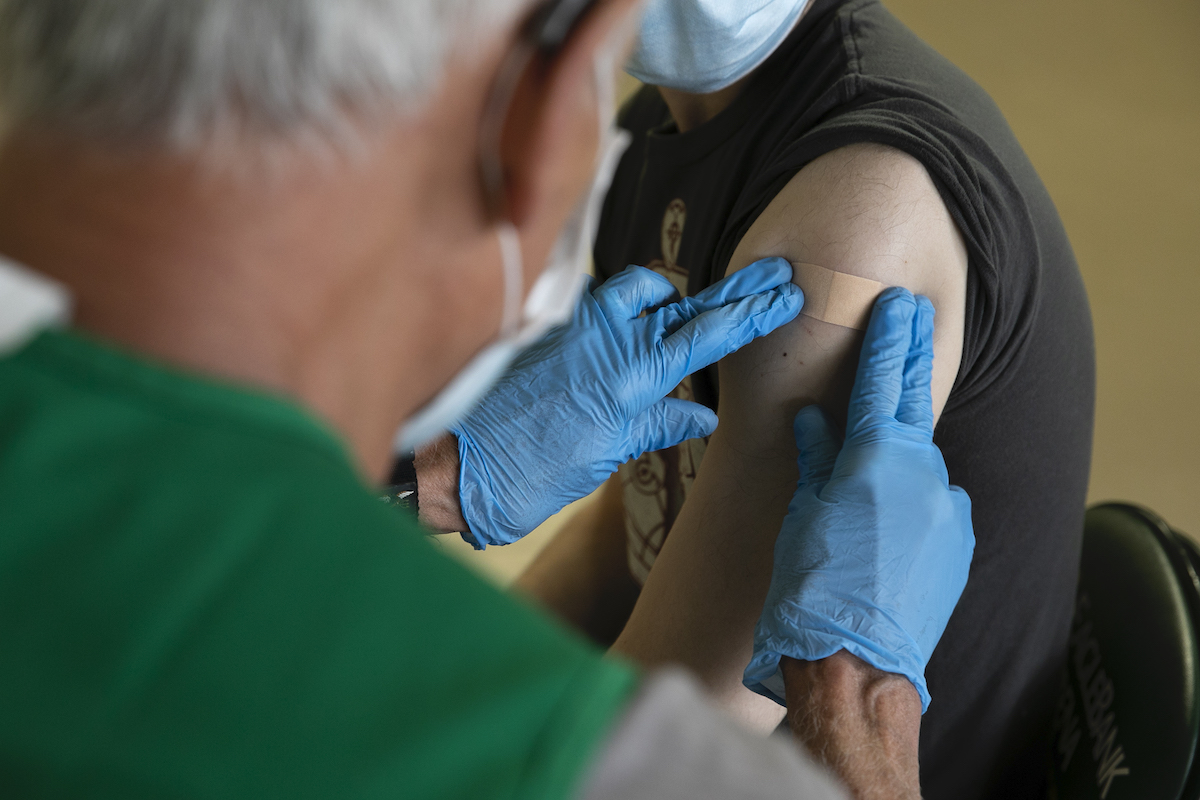
Since the COVID-19 shutdowns, thousands of students, faculty and staff are heading back to universities to resume an on-campus experience. To safely return, vaccines have been an essential part of many institutions’ strategies.
“Vaccination provides an effective measure to significantly reduce the risk of infection to both the individual and, if the majority of the population is vaccinated, to the greater population,” said Amira Roess, professor of global health and epidemiology at George Mason University’s College of Health and Human Services.
It’s one of the best chances we have to get ahead of COVID-19, said epidemiologist and Schar School professor Saskia Popescu.
“It’s been a long 18 months, but now more than ever we need to support public health interventions to help reduce COVID everywhere, because it’s not gone anywhere unless it’s gone everywhere,” Popescu said. “COVID is a global health issue and one that requires global vaccine equity and for us to help stop the spread at home.”
More vaccinations mean a lowered chance of transmission, especially for those who are vulnerable and unable to get vaccinated for health or religious reasons, Roess said.
“The more people who are unvaccinated, the more opportunities there are for the virus to replicate, which increases the probability of a more worrisome virus emerging,” she added.
The use of COVID vaccines are backed by a body of scientific research which supports their effectiveness in protecting against infectious diseases, including SARS COV 2. Many organizations are making the COVID vaccine a priority.
Mason experts think other organizations could follow suit.
“All school systems require children to be vaccinated in order to protect children from largely avoidable morbidity and mortality, including measles, polio, diphtheria, pertussis, and others,” Roess said. “The military, health care systems, countries, and many others require their populations begin vaccination to reduce and even eliminate avoidable infectious diseases morbidity and mortality.”
Experts suggest that maintaining a full and active college experience will depend on everyone doing their part.
“A fully vaccinated campus means we can enjoy more in-person activities with a lot less stress over whether or not an exposure has occurred,” Roess said. “We can avoid hearing a tragic story, or many stories, about one of our community members having severe disease or worse.”
While older individuals and those with underlying conditions are at greatest risk from COVID, Roess said, vaccination provides a benefit for everyone as it’s impossible to predict who will have severe effects.
“We’ve heard about perfectly healthy individuals experiencing long-term health effects from COVID-19,” she said. “Vaccination has been shown over and over again to greatly reduce your risk of infection in the first place.”
With the delta variant on the rise, staying committed to safety is increasingly critical.
“If you are unvaccinated and not adhering to mask wearing and physical distancing guidelines 100% of the time, it’s nearly certain you will become infected,” Roess said.
The delta variant is the most transmissible one yet, she said, and the more it spreads, the greater the chance it could change and lead to subsequent variants of concern.
Even for vaccinated individuals, Popescu recommended wearing a mask indoors when out in public.
“During these surges, we need to see masking and vaccines as complementary,” Popescu said.
“The other big issue is that there is some emerging evidence that cross-immunity between natural infection from one variant does not necessarily lead to full protection against the delta variant,” Roess said. The CDC recommends getting vaccinated regardless of whether you have already had COVID-19.
From universities to nearly all spheres of life, many people are returning to pre-COVID norms.
“The only responsible way to make a gradual return is to get vaccinated,” Roess said.
Learn more on Mason’s Access to Excellence Podcast:
Ep. 21: The coronavirus as Rubik’s Cube, Part 1 with Amira Roess
Ep. 22: The coronavirus as Rubik’s Cube, Part 2 with Saskia Popescu
